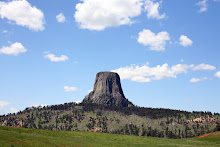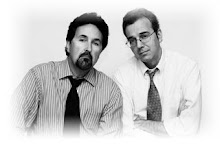Wednesday, May 19, 2010
Journalism’s dilemma: Covering weird science
By Steve Hammons
Today’s journalists, whether they are working in print media, TV or online platforms, face new challenges and opportunities.
As part of these developments, a large and growing public awareness about forward-leaning research and discovery may be changing the views of some professional journalists.
More and more people around the world are realizing that some of the most important issues of the day are emerging developments that may not have been adequately covered by both mainstream and alternative journalism.
Some of these science-related developments may have been considered too unconventional or were simply below the radar of many journalists. These kinds of topics include, for example, fascinating research about human consciousness and mysterious aspects of quantum physics.
Editors and publishers may often want to avoid some of the more unconventional topics, preferring the standard coverage of current events that are somewhat more tangible and accepted.
However, many journalists are willing to take a look at certain edge-science issues – as well as the profession of journalism in relation to them.
SCIENTIFIC REVOLUTIONS
A May 17, 2010, “editor’s blog” by Christian Science Monitor editor John Yemma was titled “Skeptical about skepticism.” Yemma pointed out that “a true skeptic questions even conventional wisdom.”
“Journalists are professional doubters,” Yemma wrote.
Whether the topic is unusual phenomena of various kinds or more conventional subjects, Yemma pointed out that excessive negativity can be a form of denial about unusual or uncomfortable possible truths.
He noted, “And that’s where we have a problem in rational discourse today. Writing in a recent issue of the 'Chronicle of Higher Education,' Carlin Romano made a distinction between today’s ‘science warriors’ and the real ‘philosophers of science.’”
“The former take an absolutist approach to science, skewering everything from the Loch Ness monster to conventional religious beliefs as ignorance,” according to Yemma.
“Philosophers of science, however, understand science to be a set of beliefs and knowledge that at times can be turned on its head, a recurring process that Thomas Kuhn described in his book 'The Structure of Scientific Revolutions,’” Yemma said.
CHANGED CLIMATE
In recent decades, certain science-related subjects have not received the mass-media journalistic attention that we can sometimes see emerging today.
There may have been legitimate reasons why certain topics remained off-limits for mainstream journalism. So, past journalists can perhaps be excused from their failure to adequately cover these subjects.
But that was then.
Today, the climate seems to have changed – and is continually changing. Now, it might be important to inform the public about interesting, if unconventional, research and discovery that are the focus of much interest around the world.
It seems that maybe it is time for journalism to shift gears and take a vigorous and reasonable look at the fascinating discoveries being made about a wide range of "weird science" subjects.
If journalists do not do this, they risk losing more credibility and being left behind by not only the public, but also by the facts on the ground in a changing reality.

























































































































































































